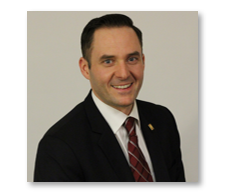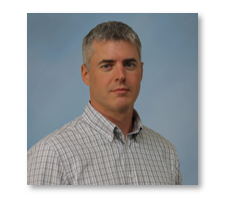
About CBCL:
CBCL Limited began in 1955 as a Halifax based civil engineering firm and has since grown into one of the largest multi-discipline engineering firms in Atlantic Canada. The largest employee-owned firm in the region, we have over 300 professional engineers, draftspeople, technologists, environmental scientists and support staff located throughout our 8 regional offices. We value the commitment and capabilities of our employees and know that the strength of our firm comes from within. In fact, we attribute our more than 60 years of success to the relationships we build with every staff member. https://www.cbcl.ca/
Thanks to CBCL for being a Gold Sponsor of the ACWWA 2021 Annual Conference!
Thanks to CBCL for being a Gold Sponsor of the ACWWA 2020 Annual Conference!
Follow CBCL:
 |
2021 Technical Presentations:
Abstract: Atlantic Canada Design Guidelines Water and Wastewater
Incorporating Climate Resilience for Municipal Infrastructure
Day 3: December 9, 2021 at 11:07 AM AT
Climate change is already impacting infrastructure, particularly in vulnerable northern and coastal regions, as well as First Nation communities. Climate-related infrastructure failures can threaten health and safety, interrupt essential services, disrupt economic activity, and incur high costs for recovery and replacement (GC, 2016). Recent impacts on water and wastewater infrastructure in Atlantic Canada includes, but is not limited to, the following:
- Wastewater pumping stations, naturally located at low points, are flooded during surge tide events.
- Gravity sewers servicing low coastal areas are below sea level during regular high tides.
- Wastewater treatment sites are inundated with flood water during extreme flooding events.
- Wastewater treatment systems are overloaded by inflow/infiltration during severe rain events.
- Drinking water sources are experiencing unpredicted drought conditions, resulting in water conservation measures.
- Municipalities are offering financial initiatives to individuals in rural areas who wish to upgrade individual wells.
The Pan-Canadian Framework on Clean Growth and Climate Change advocates that building climate resilience through infrastructure should include both (1) investing in infrastructure that strengthens resilience, and (2) developing climate-resilient codes, standards and guidelines. The Atlantic Canada Water and Wastewater Association (ACWWA) has recognized that Atlantic Canada is very susceptible to the effects of climate change, and, as the region’s water and wastewater industry leader, has determined that the constant renewal of policy and guidelines is a key method to keep the membership and industry in accordance with best practices, and to maintain a high level of confidence in the integrity of public infrastructure.
Two of the documents that are typically used in the design of water and wastewater infrastructure in
Atlantic Canada include:
- The Atlantic Canada Guidelines for the Supply, Treatment, Storage, Distribution, and Operation of Drinking Water Supply Systems (2004), (Water Guidelines), created by ACWWA to provide a guide for the development of water supplies.
- The Atlantic Canada Wastewater Guidelines Manual for the Collection, Treatment, and Disposal (2006), (Wastewater Guidelines), created by Environment Canada in to provide a guide for the design of infrastructure for the collection, treatment, and disposal of sanitary sewage.
Both documents are now under the ownership and control of ACWWA. Technology, and provincial water and wastewater requirements have advanced considerably since the production of both Guidelines, and ACWWA has determined that updates are required. ACWWA has also recognized the effects of climate on water and wastewater infrastructure and is seeking proposals for the Incorporating Climate Resilience for Municipal Infrastructure into the updates of Existing Atlantic Canada Water and Wastewater Design Guidelines. Funding for the project has been secured from Natural Resources Canada’s (NRCan) Building Regional Adaptation Capacity and Expertise (BRACE) program. Capital funding has also been approved by New Brunswick, Nova Scotia, and Prince Edward Island, and those three provinces, plus Newfoundland and Labrador, Halifax Water, City of Charlottetown, and ACWWA have approved in-kind contributions that are matched by the NRCan capital funds.
The objectives of the project are to:
- Incorporate climate resilience when investigating, designing, approving, constructing, and operating municipal water and wastewater infrastructure in Atlantic Canada.
- Inclusion of a new chapter on Climate Resilience into each of the Guidelines, and update of the existing sections to include climate resilience requirements:
- The update is to include a jurisdictional review for relevant materials, and/or reference up-to- date provincial regulatory requirements.
- Reflect advancements in water and wastewater treatment processes and technology.
- To build climate adaptation capacity through training workshops, webinars and dissemination of information.
A Climate Change chapter has been developed in both of the Guidelines. As indicated in the “Purpose and Use of the Guidelines”, the draft Climate Change chapter aims to deliver a comprehensive overview for the strategies available to gather climate change information, assess impacts and risks, and to implement effective adaptation planning. Throughout the guidelines, reference is made to climate change impacts, and what to consider in a climate change context when outlining the steps for planning, designing and operating water and wastewater infrastructure.
About Amy Winchester, Senior Chemical Engineer:
Ms. Winchester has over 18 years’ experience as a Process/Environmental Engineer. Amy is a Registered Professional Engineer working for the Saint John office of CBCL Limited. She received her undergraduate degree in Chemical Engineering from the University of New Brunswick and then went on to obtain her Master’s of Applied Science degree in Chemical/Environmental Engineering from the University of Ottawa. Since starting with the firm in 2004, Amy has worked on a diverse range of projects including water distribution master planning and modelling, asset management, climate change risk assessments, and environmental assessments. For more than 10 years, Amy has managed many multi-discipline engineering and environmental projects. She has taken several courses while working on her Infrastructure Resilience Professional designation, including: Asset Management for Engineers, PIEVC Infrastructure Vulnerability and Risk Assessment, and Understanding the Changing Legal Climate: Climate Law in Canada for Engineers.
2020 Technical Presentations from CBCL:
Abstract: Updates And Incorporation of Climate Resilience Into the Atlantic Canada Water Supply Guidelines and Wastewater Guidelines
Day 2: December 9, 2020 at 11:15 AM AT

About Mike Chaulk, Process Engineering Manager:
Mr. Chaulk holds a Bachelor of Biological Engineering (Environmental Option), and a Masters of Civil Engineering from Dalhousie University and has 17 years experience in the field of water and wastewater treatment projects. Mr. Chaulk specializes in the areas of water supply and treatment, membrane treatment of water and wastewater, distribution system protection, and pilot studies related to process optimization among a wide range of treatment system capacities. He has also provided extensive engineering services in both design-build and P3 water treatment plant projects. Mr. Chaulk is a Past Chair of the Atlantic Canada Water and Wastewater Association, and is an AWWA Fuller Awardee. He is currently the technical lead for the revision of regional engineering design guidelines for water infrastructure design incorporating climate resilience, including topics of lake recovery, drought planning, and wet weather events.
Mike will also take part in the Roundtable discussion on Day 1, plus he will be the host for the AGM on Day 2!
Abstract: Reservoir Life Cycle Assessment and Material Selection
Day 3: December 10, 2020 at 10:30 AM AT

About Jeff Clair, Municipal Engineer:
Jeffrey Clair is a municipal engineer with over 13 years of experience in engineering consulting. Having worked in Alberta for half of his career, Jeff returned to Atlantic Canada and joined CBCL in November of 2015. Since joining CBCL, Jeff’s focus has been on critical potable water infrastructure and he has been engaged on several projects including water reservoirs, pump stations and transmission mains.

About Rob Morrison, Municipal Engineer:
Robert Morrison holds a Bachelor of Engineering (Civil Engineering) from Dalhousie University and has more than nineteen (19) years of consulting engineering experience with a background in municipal infrastructure and wastewater treatment. Since joining CBCL as a Municipal Engineer in 2014 he has focused on municipal infrastructure projects including water distribution and storage.

